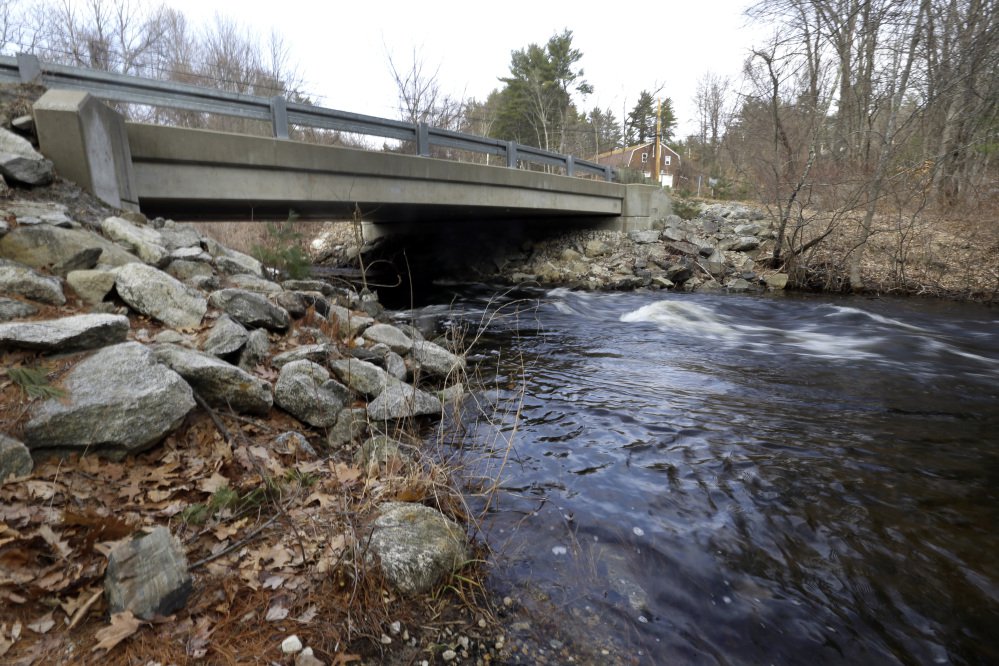CONCORD, N.H. — Gov. Chris Sununu pledged to invest tens of millions of dollars in repairing roads, bridges and schools in his recent budget address.
But he’s light on specifics about how the estimated $84 million would be doled out, leaving towns, cities and school districts wondering which potholes will be filled, classrooms remodeled and bridges rebuilt.
“I have no idea how this is going to work,” said Judy Silva, executive director of the New Hampshire Municipal Association. “It remains to be seen just how much money gets to municipalities and how quickly.”
Sununu, a Republican, has envisioned using surplus dollars from the last budget to create an Infrastructure Revitalization Fund. Nearly 12,000 miles of roads in New Hampshire are maintained by cities and towns, with many in poor condition, and more than 300 municipal bridges are on the state’s “red list.”
The state does kick in some money, but property taxpayers are also on the hook for many repairs. And the state has suspended its school building aid program, leaving millions of dollars of requests on the table to fix things like asbestos and lead paint.
“You get one bridge that fails and it can take out your whole public works budget for a year. That’s kind of what they’re dealing with,” said Bill Boynton, a spokesman for the state Transportation Department.
Lawmakers and town officials are cautiously optimistic about Sununu’s plans. Cities and towns are budgeted to receive a collective $34 million in block grants from the state’s highway fund this year on top of about $6.8 million in bridge aid, Silva said.
In Keene, 14 of the city’s 32 bridges are on the “red list,” which means they’re structurally deficient. Almost all of them still are in use. The city puts up to $1.4 million a year into road repairs but expects it would cost $50 million to fix every city road in “poor” or “very poor” condition, city engineer Don Lussier said.
“I think any funding options or opportunities are going to help local governments, because they’re all strapped,” Lussier said. “But $84 million, in terms of the entire bill for roads, bridges and schools in the state, it sounds like a lot of money, but when you divide it up among all of the local communities it’s not that much money.”
Exactly how that money would be divvied up is unclear. In his budget, Sununu proposes creating a 10-member commission to advise him on which projects to choose. He’d then seek approval from the executive council and a legislative committee on each project. His budget offers no guidelines on how projects would be chosen. Money to fight the opioid crisis may also come from the fund, Sununu’s office said.
The Legislature isn’t likely to approve such a setup. Republican Rep. Neal Kurk, the House’s chief budget writer, said he’d like to use existing formulas for handing out aid rather than relying on a commission. Whether the full $84 million is there also depends on how state revenues come in during the next few months, something House budget writers will watch closely.
Still, Republicans seem enthusiastic about a chance to give money to their cities and towns.
“One-time money to take care of some real problems that school districts have, with safety of the building or the size of their building or the age of their buildings, would make sense,” Kurk said.
With Republicans in control of the Legislature and the governor’s office, negotiations on this and other topics may go more smoothly than in years past.
Send questions/comments to the editors.



Success. Please wait for the page to reload. If the page does not reload within 5 seconds, please refresh the page.
Enter your email and password to access comments.
Hi, to comment on stories you must . This profile is in addition to your subscription and website login.
Already have a commenting profile? .
Invalid username/password.
Please check your email to confirm and complete your registration.
Only subscribers are eligible to post comments. Please subscribe or login first for digital access. Here’s why.
Use the form below to reset your password. When you've submitted your account email, we will send an email with a reset code.